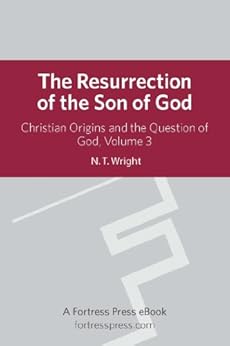For a number of years I have been setting goals of various sorts at the beginning of the year, things to guide me in my year. Many of them I never get done, but others I do, or at least I get farther than I would have otherwise. This year, my theological reading goal was to read a substantial portion of N.T. Wright's The Resurrection of the Son of God by Easter. I had been told by a good friend that it was probably the best book available on the resurrection of Jesus Christ. And, in fact, it has been excellent - there are certainly things to disagree with along the way, but the book has painted a beautiful picture within historical and literary contexts of the ideas of resurrection in the ancient world. Here I'd like to share some extracts, any emphasis is added by me.
...observations and ramblings from a learner and traveler...
02 February 2017
Resurrection - quotes from Wright
[Resurrection was] the reversal or undoing or defeat of death, restoring to some kind of bodily life those who had already passed through that first stage. It belonged with a strong doctrine of Israel’s god as the good creator of the physical world. It was the affirmation of that which the pagan world denied... (Kindle 4667)
Resurrection is precisely concerned with the present world and its renewal, not with escaping the present world and going somewhere else; and, in its early Jewish forms right through to its developed Christian forms, it was always concerned with divine judgment, with the creator god acting within history to put right that which is wrong. Only if we misunderstand what resurrection actually involved can we line it up with the kind of ‘pie in the sky’ promises which earned the scorn of many twentieth-century social reformers. (Kindle 3303)
The constant love of YHWH was never merely a theological dogma to the ancient Israelites. In many parts of their literature, and supremely the Psalms, we find evidence that they knew this love in vivid personal experience. (Kindle 2558)
Where we find a glimmer of hope like this, it is based not on anything in the human make-up (e.g. an ‘immortal soul’), but on YHWH and him alone. Indeed, YHWH is the substance of the hope, not merely the ground: he himself is the ‘portion’, i.e. the inheritance, of the righteous, devout Israelite. (Kindle 2674)
Echoes of the Genesis creation narratives lurk in the shadows of these passages: it is from the dust that YHWH creates humans, breathing into them his own breath, and when he takes it away again they return to dust once more.162 The fresh gift of his breath will then bring the dust to life.163 The promise of resurrection is thus firmly linked to creation itself, which was the basis of the normal ancient Israelite celebration of life in the present, bodily life in YHWH’s good land. This robust affirmation of the goodness of life in YHWH’s world and land is what is called into question when Israel sins and faces punishment in the form of national catastrophe. (Kindle 3002)
at
3:03 PM
![]()
Labels: Book Recommendations and Considerations, Genesis, Quotations, Theology
Subscribe to:
Post Comments (Atom)

No comments:
Post a Comment